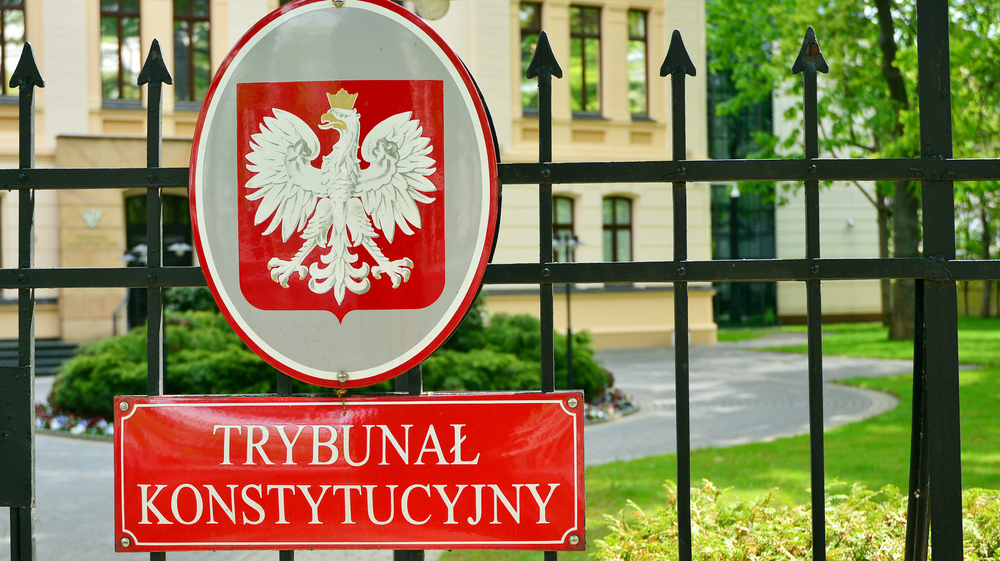The undersigned partners of the Media Freedom Rapid Response (MFRR) are highly concerned about new possible restrictions on the right to information in Poland that could further erode press freedom in the country. On 15 December 2021, the Constitutional Tribunal will hold a hearing on the constitutionality of core provisions of the bill that regulates access to public information.
The right to information is a vital right of the public for holding governments to account and vital to the work of journalists who investigate abuse of power. We believe that imposing extensive constraints on existing legislation would undermine public transparency and thereby impede media outlets to duly fulfill their role of watchdogs.
On 16 February 2021, the First President of the Supreme Court, Małgorzata Manowska submitted an application to Poland’s Constitutional Tribunal requesting that several essential provisions of the Act of 6 September 2001 on Access to Public Information (AAPI) be ruled as inconsistent with the respective articles of the Polish constitution. Her statement consists of six allegations concerning the elementary provisions of the AAPI.
The First President argues that several core provisions of the AAPI lack clarity and precision and contravene the right to privacy and to the protection of personal data. Małgorzata Manowska requested to find certain articles of the bill unconstitutional as they allegedly do not unequivocally regulate the relationship between them and the respected provisions on access or limitation on access to data written in the Constitution and the other legal acts.
This is not the first attempt to constrain access to public information in Poland. Małgorzata Gersdorf, Manowska’s predecessor, also sought to find certain provisions of the AAPI unconstitutional, although in a much narrower scope. In an interview with Gazeta Wyborcza, Mirosław Wróblewski, attorney at law from the Polish Ombudsman’s office, notes that his office believes that the law in force adequately balances the public and private interests, including the right to privacy. In Mr. Wróblewski’s opinion, voiding the aforementioned provision would damage the foundation of the law on access to public information in Poland: “It would not be clear what to share and who is supposed to share anything”, he stresses.
If the Constitutional Tribunal rules in favor of Manowska’s claim it may greatly impair the possibility, let alone efficiency of monitoring and controlling the activities of state institutions or state-owned enterprises. This may lead to a situation in which solely public officials (not only high-ranking politicians but all of the entities that have public funds at their disposal) arbitrarily decide which information may be disclosed. Hence, the transparency of public life would be seriously damaged. Wróblewski notes that the request of the First President could violate the right to freedom of speech guaranteed in the Constitution and directly affect press freedom in the country. The MFRR finds such a scenario dangerous as it would deprive journalists from their basic right of using the official route to obtain information on public institutions or public spending. The checks and balances mechanism that enables civil society to have control over the activities of state institutions may thus be disrupted.
Contesting the key elements of Polish legislation on access to public information would violate international law and standards, including Article 19 of the International Covenant on Civil and Political Rights as elucidated by the Human Rights Committee in its General comment No. 34, and Council of Europe standards on right to information, in particular those specified in Recommendation Rec(2002)2 on access to official documents, as well as in the recently entered into force Tromso Convention.
The MFRR is monitoring the ongoing erosion of media freedom in Poland with great concern. The government continues to wage a multi-pronged attack on independent media to muzzle critical reporting and to discredit journalists by fostering a hostile working environment. These potentially grave restrictions of access to information would blaze the trail to blatant lack of accountability of public officials. We urge the Government to ensure this scenario will not materialise and reiterate how vital unrestrained access to information is for democracy and press freedom. If difficult questions are asked by citizens or journalists, public institutions should answer in a transparent manner rather than change the law as a remedy to avoid similar situations in the future. Journalists must be able to conduct their investigations and raise critical issues freely in order to fulfil their role of a primal, unbiased source of information for civil society.
Signed:
ARTICLE 19
European Centre for Press and Media Freedom (ECPMF)
International Press Institute (IPI)
Osservatorio Balcani e Caucaso Transeuropa (OBCT)
This statement is part of the Media Freedom Rapid Response (MFRR), a Europe-wide mechanism which tracks, monitors and responds to violations of press and media freedom in EU Member States and Candidate Countries.

